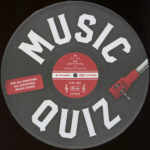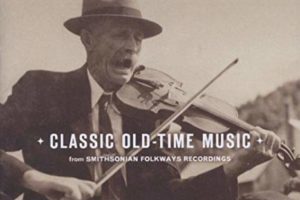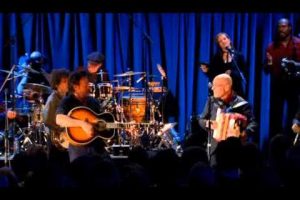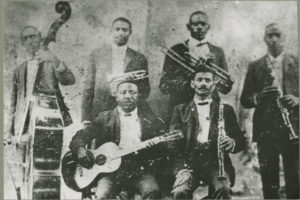Martial music is out of style. That’s a good thing, if it means that people are less militaristic. The two are not necessarily connected, however, and the music should be considered on its own merits.
John Philip Sousa is the great name in American marching music. Here is part of the profile at from Wikipedia:
Sousa’s father was Portuguese, and his mother of Bavarian ancestry. Sousa began his career playing violin and studying music theory and composition under John Esputa and George Felix Benkert. His father eventually enlisted him in the United States Marine Band as an apprentice in 1868. After departing the band in 1875, Sousa eventually learned to conduct. From 1880 until his death, he focused exclusively on conducting and the writing of marches. He eventually rejoined the Marine Band and served there for 12 years as director. On leaving the Marine Band, Sousa organized his own band. He toured Europe and Australia and developed the sousaphone, a large brass instrument similar to the tuba. On the outbreak of World War I, Sousa was commissioned as a Lieutenant Commander and led the Naval Reserve Band in Illinois. Following his tenure, he returned to conduct the Sousa Band until his death in 1932. (Continue Reading…)
Above is “The Washington Post” played by The United States Marine Band. The conductor, who is not named, provides a nice introduction. Below is Chet Atkin’s tremendous and surprising acoustic version of “Stars and Stripes Forever.” Sousa’s best known song was composed in 1889 and is the National March of the United States of America. In a slightly longer version of the clip, Atkins says that he plays the song whenever he wants to be nervous and calls Sousa one of America’s great composers. The video quality of that clip is not as good as the one here.











Recent Comments